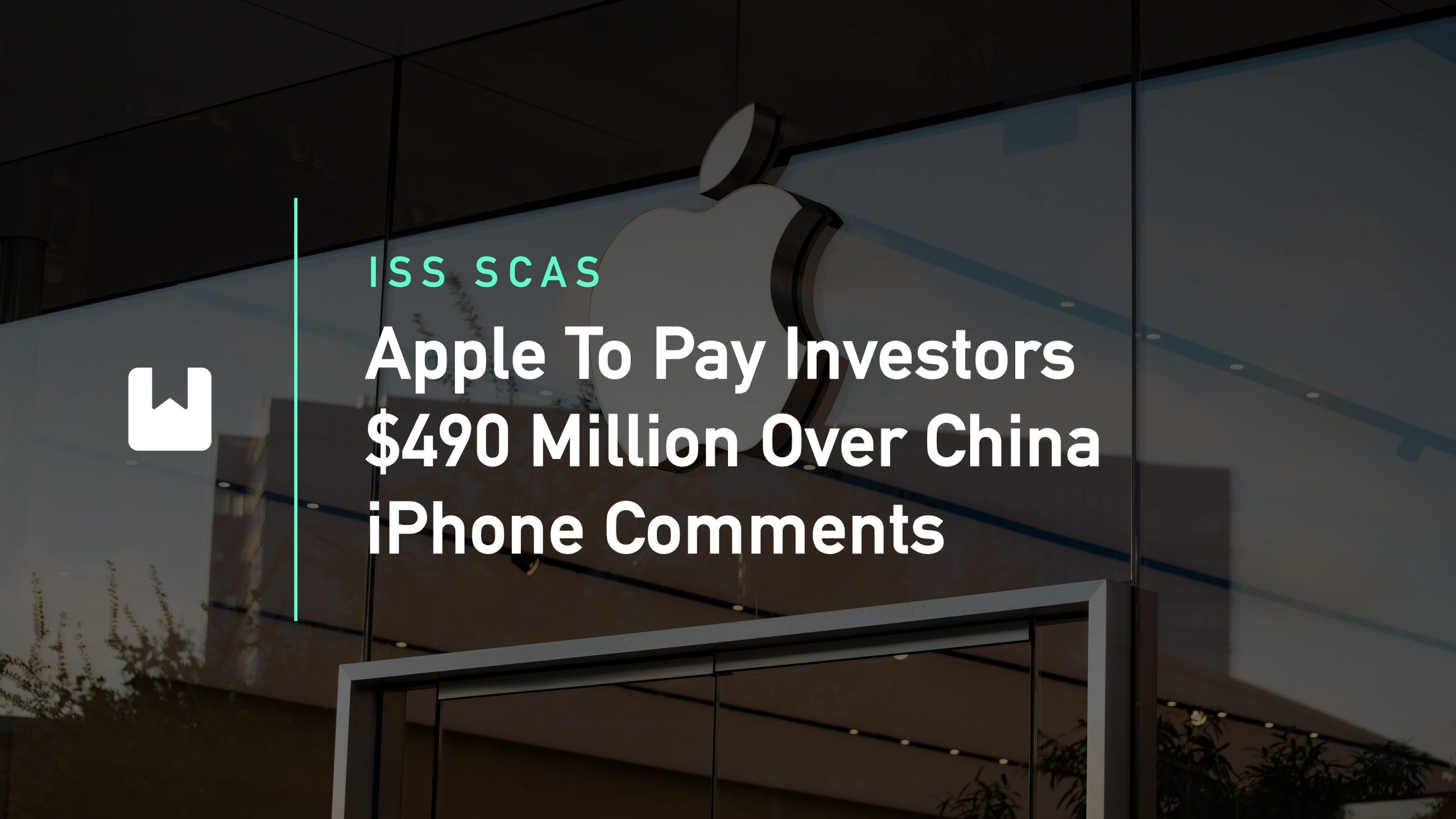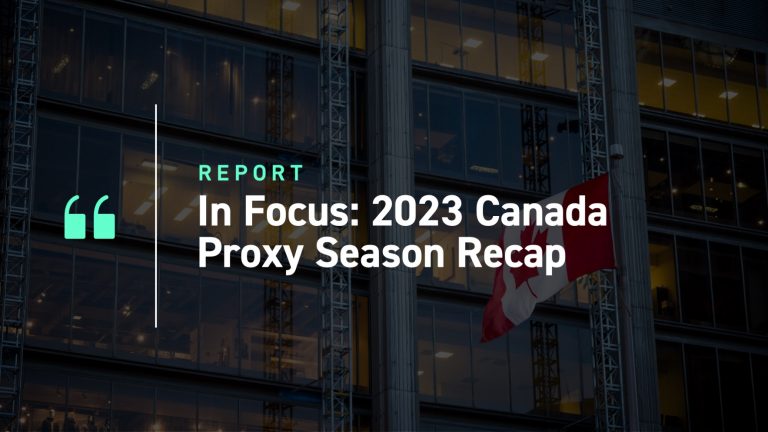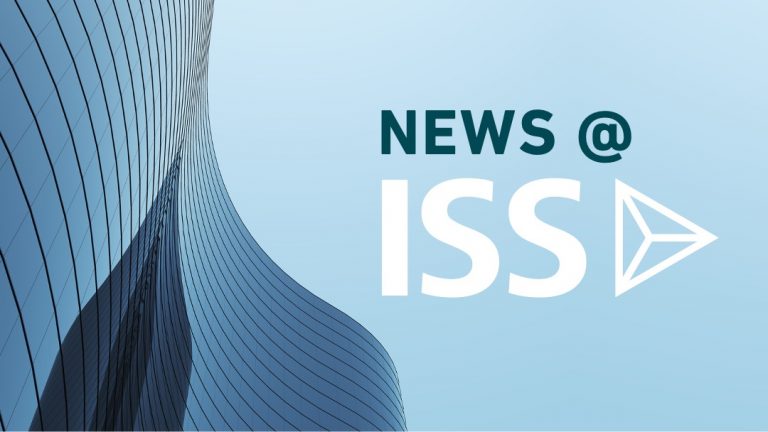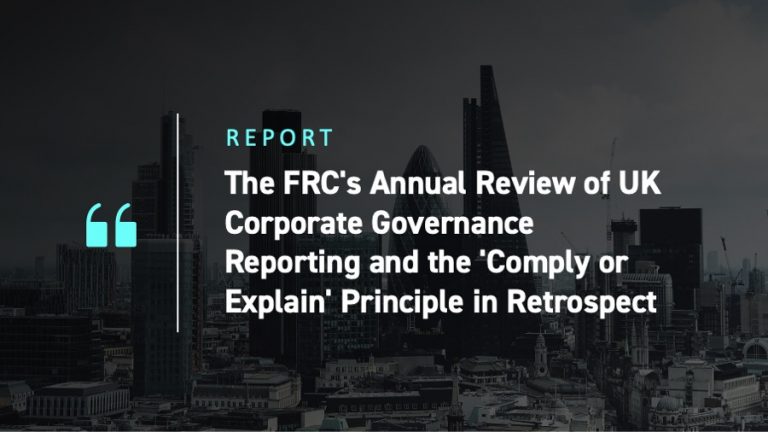Apple has reached a $490 million tentative settlement to resolve allegations that in late 2018, the company misrepresented the state of the business in Greater China, its most important growth market at the time.
As the Trump Administration imposed steep tariffs on Chinese goods, Apple and its top executives allegedly concealed that the “trade war” with China had negatively impacted demand for iPhones. On a conference call with investors and analysts on November 1, 2018, Apple CEO Tim Cook stated Apple was not experiencing the negative economic pressures in China it had been in other emerging markets. Four days later, however, Apple cancelled production for the iPhone XR, leading to approximately a 30% reduction in sales.
On January 2, 2019, Apple announced it will miss its earnings guidance for the first time in fifteen years — by up to $9 billion. CEO Cook explained in a letter to investors that lower than anticipated iPhone sales, particularly in Greater China, accounted for the revenue shortfall. Apple’s stock price dropped about 10% as the result of the news, from $157.92 to $142.19 per share.
The class action complaint further alleges the following:
- In 2018, China began experiencing slowing economic growth, compounded by tariffs imposed on Chinese goods imposed by the Trump Administration in April, July, and September 2018.
- Geopolitical tensions occurred just as Apple introduced in September 2018, two new expensive iPhones, the iPhone XS and the iPhone XR, leading analysts to question whether they would sell in the economic climate.
- Nevertheless, on November 1, Apple released its revenue guidance for 1Q19 at “a new all-time record” of $89 billion to $93 billion. Later that day, Apple held a conference call, where analysts expressed concerns about deceleration in China.
- Apple CEO Tim Cook allayed analyst concerns on the November 1 conference call, stating he would not put China in the category of emerging markets like Turkey, India, Brazil, and Russia. Cook further added business in China was “very strong” last quarter, and Chinese iPhone sales had gotten off to a “really great start.”
- Four days after the call, Nikkei Asian Review reported that Apple cancelled its “production boost” for the iPhone XR. On December 4, in what was interpreted as a “fire drill” response to poor iPhone sales, Bloomberg noted Apple had moved marketing staff to sales.
- On January 2, 2019, Cook sent a letter to investors explaining Apple will miss its earnings guidance by up to $9 billion, because “it did not foresee the magnitude of the economic declaration, particularly in Greater China.”
- In an interview with CNBC later that evening, Cook further explained the impact that the slowing economy in China had on the Company’s
1Q 19 sales in.
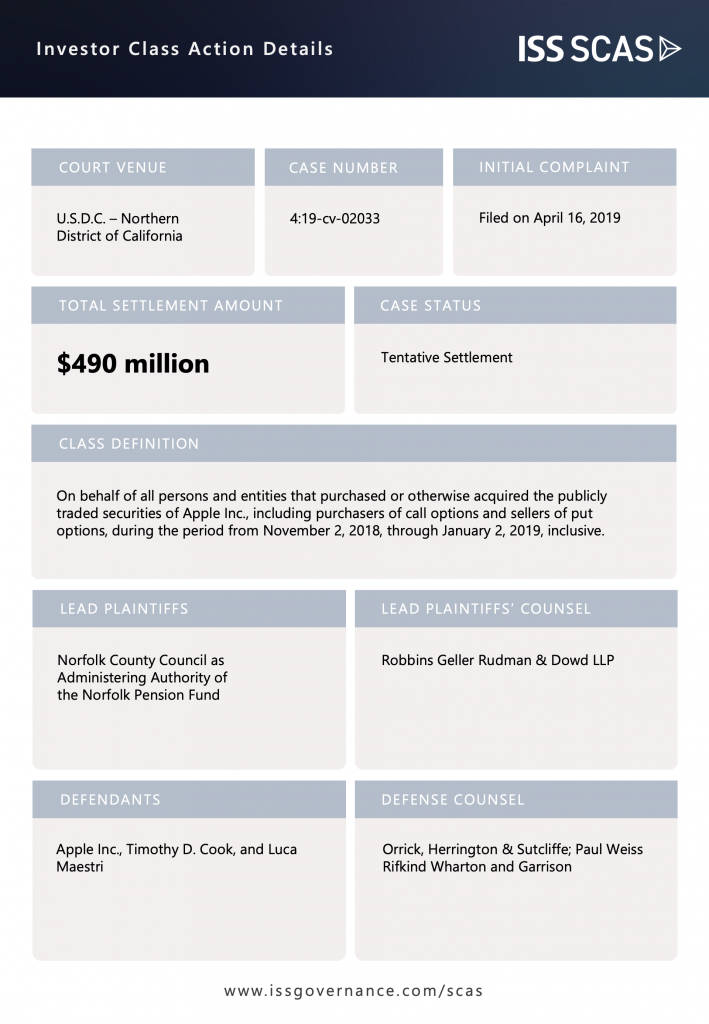
After more than five years of protracted litigation, the parties reached the tentative settlement before the trial date set for September 2024. The case initially had a different lead plaintiff and alleged a far-reaching deception, including iPhone “throttling” and the impact of a battery replacement program. The Court dismissed the majority of those allegations, and transitioned the lead plaintiff and lead counsel to the Norfolk Pension Fund and Robbins Geller
Rudman & Dowd, respectively.
Norfolk filed a revised complaint on narrower grounds which partially survived defendants’ motion to dismiss. The class was initially certified for common stock purchasers in February 2022 and later certified as to option purchasers and sellers in March 2023. In June 2023, the court denied defendants’ motion for summary judgment, rejecting defendants’ arguments that Cook did not have the requisite intent and that CFO Luca Maestri did not have control over Cook’s statements.
If approved, the $490 million payout will become the third largest securities class action settlement in the Northern District of California, behind McKesson HBOC Inc. ($960 million) and Twitter, Inc. ($809 million). The tentative settlement is also the largest to be announced so far this year.
ISS SCAS will continue to monitor and file claims for this high-profile action and others, if and when, they progress toward an official settlement.
By:
Jarett Sena, Esq., Director of Litigation Analysis, ISS Securities Class Action Services
